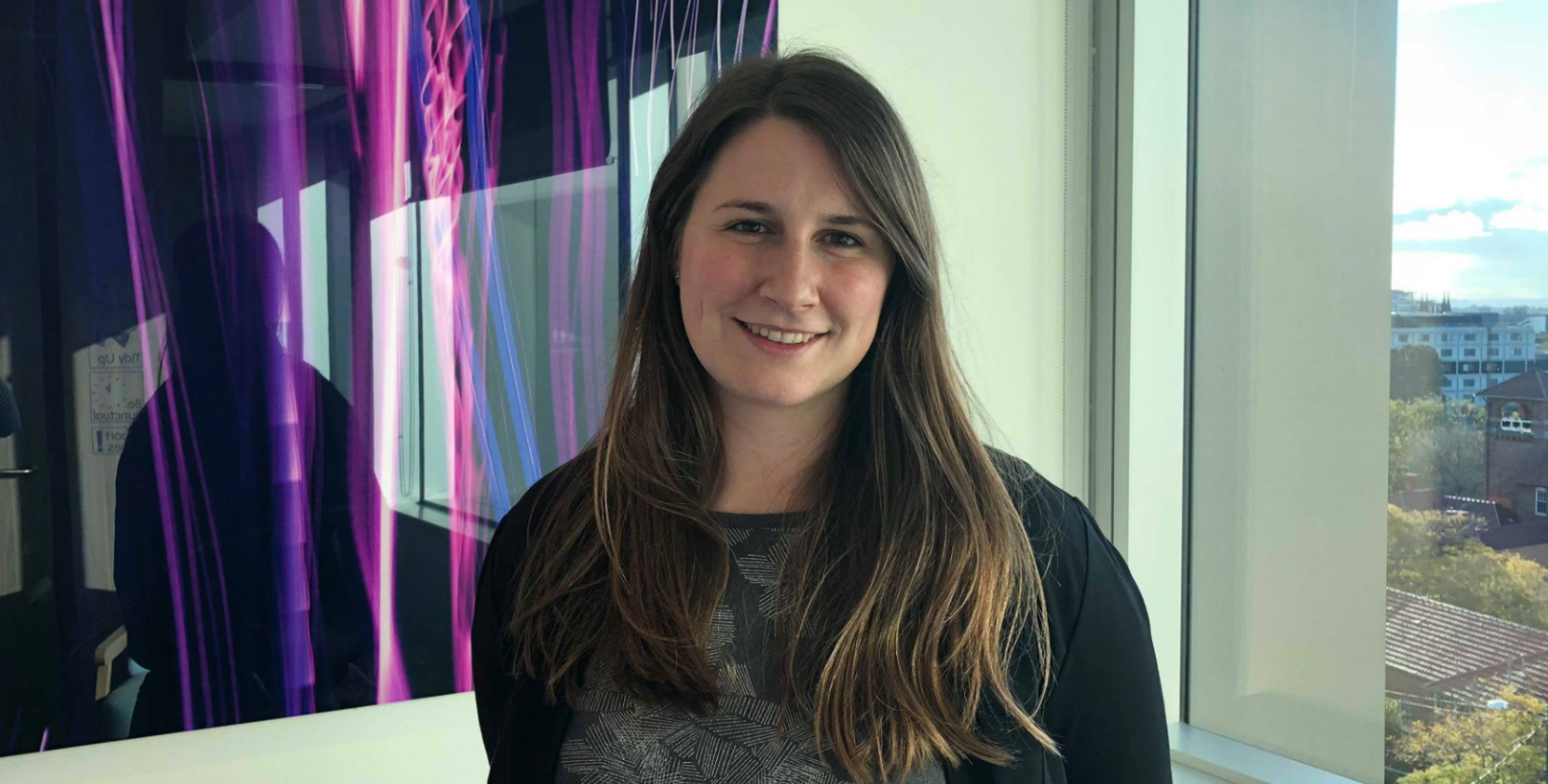
Lisa Dillon: preventing falls in people with vision impairment
Lisa Dillon joined the George Institute in May 2016 as a PhD Candidate with the Injury Division. Lisa is also an Orientation and Mobility Specialist, teaching individuals of all ages with vision impairment to travel safely, confidently and independently in their environment. Previously, Lisa has worked with adults who have sustained injury due to workplace incidents return to work and remain independent.
How long have you been working at The George Institute? What attracted you to working here?
Since May 2016, so a little over 2 years now. The opportunity to work in a multidisciplinary team of talented researchers, whose main aim is to improve the health of people not only here in Australia, but those across the world. The ethos of The George Institute flows through its culture, where diversity is not only respected but celebrated.
What is your area of research and how does it help people lead healthier lives?
The main area of my research is falls prevention in people aged 50+ with vision impairment. Along with being a PhD Candidate, I am also an Orientation and Mobility Specialist with Guide Dogs NSW/ACT. Orientation and Mobility Specialists work with people of all ages with all levels of vision impairment to help them develop the skills and strategies to travel safely and independently within their home or community. Due to reduced visual capacity to identify hazards and drop-offs, and lower rates of physical activity, people with vision impairment are at a higher risk of falls, compared with sighted peers. Exercise-based programs have been shown to prevent falls in older community-dwelling adults.
Our research aims to investigate the effect of a home-based strength and balance exercise based program, LiFE, on falls and function of daily tasks in people aged 50+ with vision impairment. The exercise program is being delivered by 40+ Orientation and Mobility Specialists (such as myself) from Guide Dogs across NSW and ACT to ~300 older people with vision impairment, as part of a randomised controlled trial. As part of this trial, I am working on the implementation and evaluation of the program, and speaking with experts in the fields of vision impairment and falls prevention, as well as older people with vision impairment, to understand what a scalable solution may look like for this population.
Tell us about your recent or upcoming conferences. What were you or will you be doing there?
In November this year, I have back to back conferences: Safety 2018 World Conference in Bangkok, Thailand, and the ANZ Falls Prevention Conference in Hobart, Tasmania.
At the Safety World Conference, I will be presenting my findings on a process evaluation of the exercise program delivered by Orientation and Mobility to older people with vision impairment.
At the ANZ Falls Prevention Conference, I will be describing how we adapted the program to make it accessible for people with vision impairment, and the perspectives of participants receiving the program and the Orientation and Mobility Specialists delivering the program. Both conferences will be a great opportunity to learn from experts in the areas of injury prevention and specifically falls prevention.
Back in May, I also had the opportunity to present on the adaptation of the exercise program for people with vision impairment, alongside a colleague from Guide Dogs, Metaxia at the NSW Falls Prevention Network Forum in Sydney. Metaxia presented case studies of participants she had delivered the program to. This was an example of how research and real-world practice can intersect successfully and has since resulted in a follow-up presentation to physios working in falls prevention.
In your opinion, what is the biggest challenge today when it comes to global health?
Scalable solutions to real-world problems. Researchers are constantly working on novel and effective ways to tackle global health issues, but I think seeing this research translate into real-world impact for individuals needs to also be a focus. Whether this is more collaboration between researchers and industry professionals, or some sort of system that encourages adoption of research into practice.
What motivates you most in your work?
Working one on one with participants, seeing them improve, and the effect my research has on their day to day lives.
How did your career in health get started?
Early on in my career, I worked in accounting because of a love of numbers. However, I worked out very quickly that I could use my love of numbers to help people live healthier lives, rather than receive a healthy return on their tax. I consequently commenced a Bachelor of Psychology, followed by a Masters of Special Education (Sensory Disability), which led to my career as an Orientation and Mobility Specialist, and consequent PhD opportunity at The George Institute for Global Health. The spark for research developed early on in my Psych degree, where research methods and statistics courses were weaved throughout the degree.
To explain to people what I do I say…
‘I am a PhD Candidate at The George Institute for Global Health, where I research falls prevention in people with vision impairment. I also work at Guide Dogs (I usually get a wide-eyed look at this point at the idea that I probably spend my day cuddling cute Labradors), and unfortunately no I don’t work directly with the dogs, but I do help people with vision impairment develop the skills to independently move through their environment, whatever that may be.’


